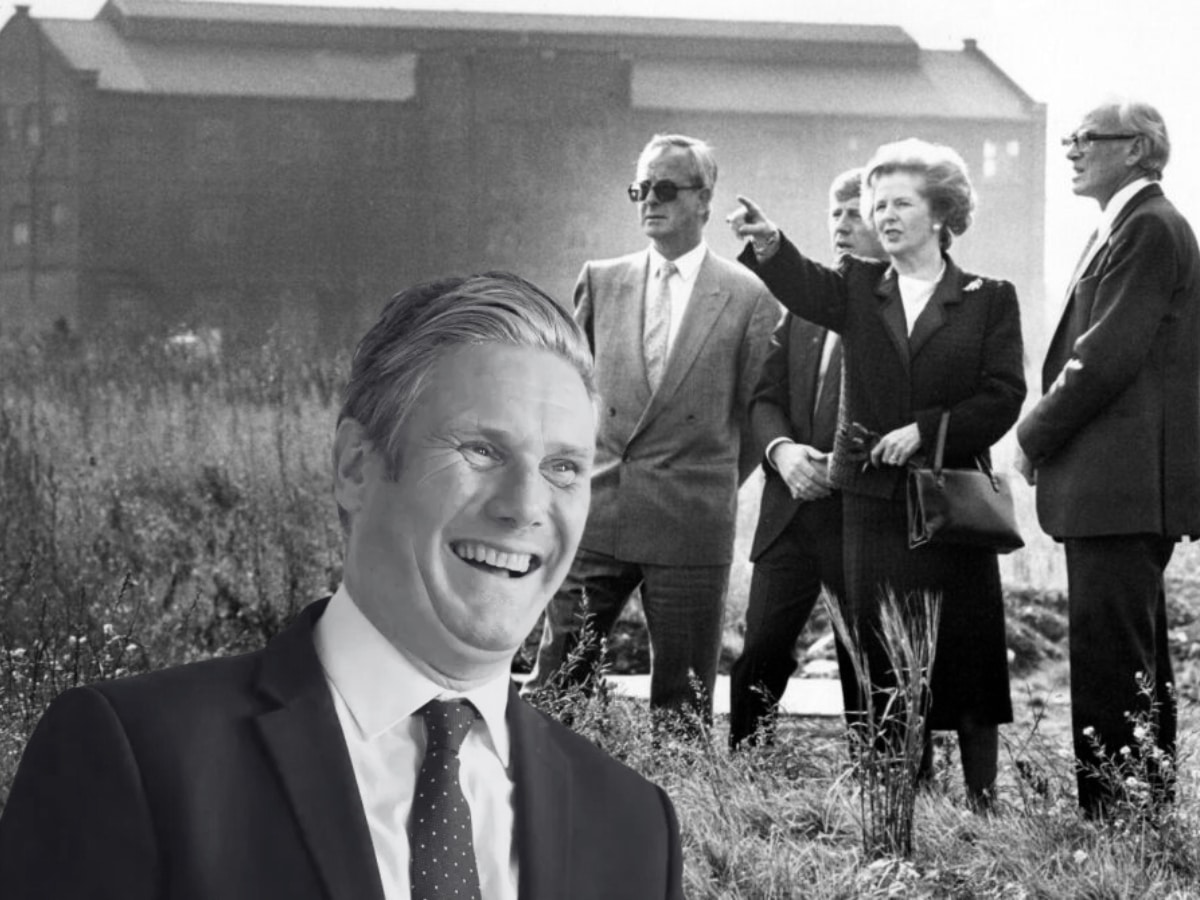Since the 1990s, the UK public has paid nearly £200bn to the corporate shareholders of privatised utilities, according to Common Wealth. The thinktank dubbed the wealth extraction a “privatisation premium” or a “double penalty” when paying to access what should be public services.
The sectors looked at were energy, water, rail and mail. But public ownership could also be extended to other key utilities such as internet provision, while regulation of highly profitable and large businesses could mandate such income to be reflected in staff wages and lower prices. As of 2023, the super rich extracted a whopping 45% of the UK’s entire national income in profiteering rent.
Privatisation “picked our pockets”
Common Wealth writes:
Families using essential services have been turned into cash cows for international investors. Privatisation picked our pockets and sold our wallets back to us. But it’s not just about the money: what are our lives like when we lack control of the basic services we all rely on? Navigating fragmented and bureaucratic service provision is a bewildering and disorientating ordeal. Accountability has evaporated. Nobody seems to be able to fix obviously broken systems. Pride in a shared, collective life and set of common experiences has slowly disintegrated. Nothing seems to work properly anymore. Basic infrastructure is falling apart, from exploding substations and gas pipes to collapsing waterways and a lack of affordable housing. We no longer build with scale or ambition. Britain feels like a country in decline.
The thinktank continues:
The privateers promised us a miracle: competition, lower bills and better services. Instead, we got inefficient monopolies, rising costs and worsening outcomes, as ordinary people struggle to afford the essentials. The dream of privatisation has turned into the nightmare of Rip-Off Britain.
The broader picture
Indeed, historically, it was cooperation that ensured the survival of Homo sapiens over other human species. It was not competition. The pro-competition argument is a divide and rule strategy, making it seem like acting against each other’s economic interests is a beneficial idea. Competition is for sports and games, not for economic provision.
That’s not to say we become a collective herd – there’s a role for individualism and the ego, but not in the organisation of essential services. Even on pro-competition terms, there can be no market competition in water, the electricity grid, nor the trains. It’s a fact that there are one set of water pipes that connect a household to one utility. There cannot be a marketisation between competing companies. Yet, Common Wealth found that 28% of our water bills goes to shareholder dividends and servicing debt.
Same with the energy grid: there is one network, not competing ones, leaving the privatised monopoly we currently have. Still, Common Wealth revealed that electricity network operators took 64% in operating profit between 2020 and 2024.
And it’s a similar story with the trains. Railways are a natural monopoly. That’s because a business cannot build another train station in a town or city to compete with the existing station that’s already in the area. That would make no practical sense, take up too much space unnecessarily and be very expensive. Nonetheless, Common Wealth showed that the rich extracted £79bn from the railways from 1997-2020.
With the figures in from Common Wealth, it’s clear we need to re-imagine our society.
Featured image via the Canary













